Are you looking to craft the perfect letter recommending someone for board membership? Writing a compelling executive recommendation can make all the difference in showcasing the candidate's qualifications and aligning them with your organization's values. In this article, we'll explore essential components of an effective letter, including how to highlight the candidate's skills, experiences, and the unique contributions they can offer to the board. Dive in to discover actionable tips and a customizable template that will help you create a standout recommendation.

Introduction and Purpose
The introduction of an executive recommendation for board membership often highlights the candidate's qualifications, expertise, and alignment with the organization's strategic goals. Emphasizing the importance of governance, effective leadership, and diverse perspectives, this introduction sets the stage for presenting compelling reasons to consider the individual for the board role. It may reference specific industry experience relevant to the organization's mission or recent market challenges, showcasing how the candidate could enhance decision-making processes. Furthermore, the purpose of the recommendation might outline the anticipated contributions the candidate would make toward fostering innovation and driving sustainable growth within the organization.
Personal Qualifications and Expertise
Executive recommendations for board membership require a comprehensive highlight of personal qualifications and expertise. A candidate's professional background, such as previous leadership roles within Fortune 500 companies, showcases their capability in strategic decision-making. Expertise in financial oversight, illustrated by serving as Chief Financial Officer for a major corporation, demonstrates their proficiency in managing budgets exceeding $100 million. Additionally, experience in non-profit organizations emphasizes a commitment to community engagement and robust governance practices. Knowledge in industry trends such as digital transformation or sustainability initiatives positions the candidate as forward-thinking, essential for modern board discussions. Advanced degrees, such as an MBA from Harvard University, complement their professional journey, providing a solid foundation for complex problem-solving and innovative strategies.
Professional Achievements and Experience
John Smith, a seasoned executive with over 25 years of experience in global finance, exemplifies unmatched leadership within Fortune 500 companies, including XYZ Corporation and ABC Industries. His tenure as Chief Financial Officer (CFO) involved managing budgets exceeding $2 billion annually and spearheading successful mergers and acquisitions, resulting in a 30% increase in shareholder value within three years. Smith's expertise extends to strategic financial planning and risk management, illustrated through a 15% reduction in operational costs during his leadership at XYZ Corporation. His board involvement at non-profits enhances community engagement, while his MBA from Harvard Business School enriches his strategic insight and decision-making capabilities. Smith's proven track record and diverse experience position him as an invaluable addition to the board, where he will contribute to shaping future strategic initiatives.
Alignment with Board Goals and Values
An executive recommendation for board membership hinges on the applicant's alignment with the organization's strategic objectives and core values. Candidates should exemplify integrity, innovation, and collaboration which reflect the mission of organizations such as the World Economic Forum or the International Monetary Fund. Demonstrated experience in fostering stakeholder engagement or enhancing sustainability initiatives can greatly contribute to achieving board goals. For instance, an individual with a proven track record in corporate governance or impactful community service can enhance the board's diversity and perspectives, aligning with modern governance principles. Additionally, familiarity with the industry trends, such as digital transformation in technology sectors, can help guide decision-making processes that are crucial for the organization's future. Members must also be committed to advancing social responsibility and ethical practices within the corporate framework.
Conclusion and Endorsement
An executive recommendation for board membership embodies a critical endorsement, emphasizing the candidate's qualifications, leadership style, and alignment with organizational values. Notable criteria include proven experience in strategic decision-making, strong financial acumen, and a track record of fostering inclusivity. The candidate's past roles in reputable institutions demonstrate their capability to navigate complex challenges and drive growth. Furthermore, their commitment to corporate governance and ethical practices aligns with the board's mission to uphold accountability and transparency. Endorsing this candidate ensures a diverse perspective and innovative approaches to the organization's future endeavors.
Letter Template For Executive Recommendation For Board Membership. Samples
Letter template of executive recommendation for board membership appointment.
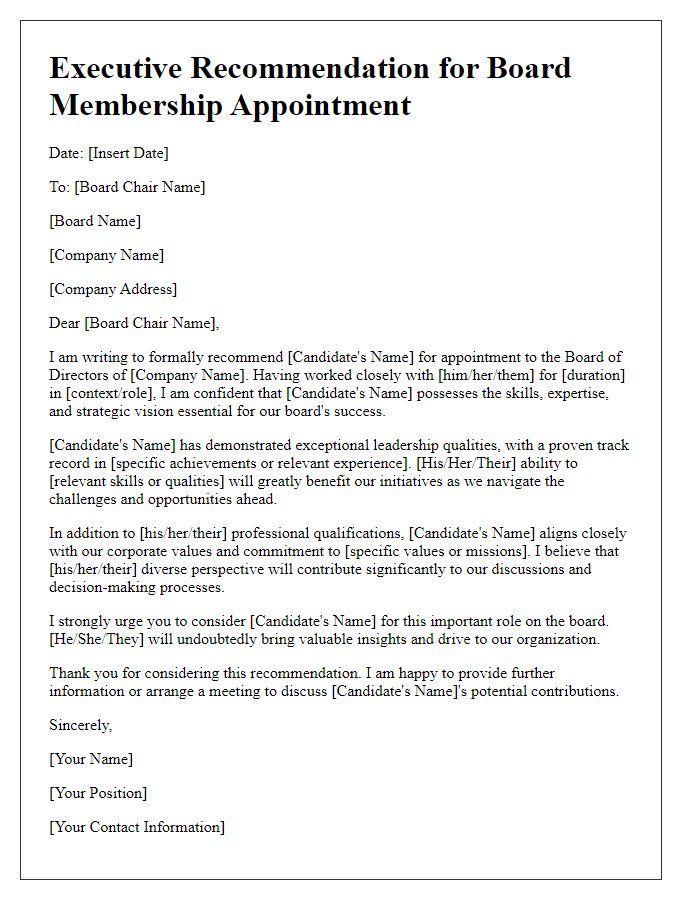
Letter template of executive recommendation for board director nomination.
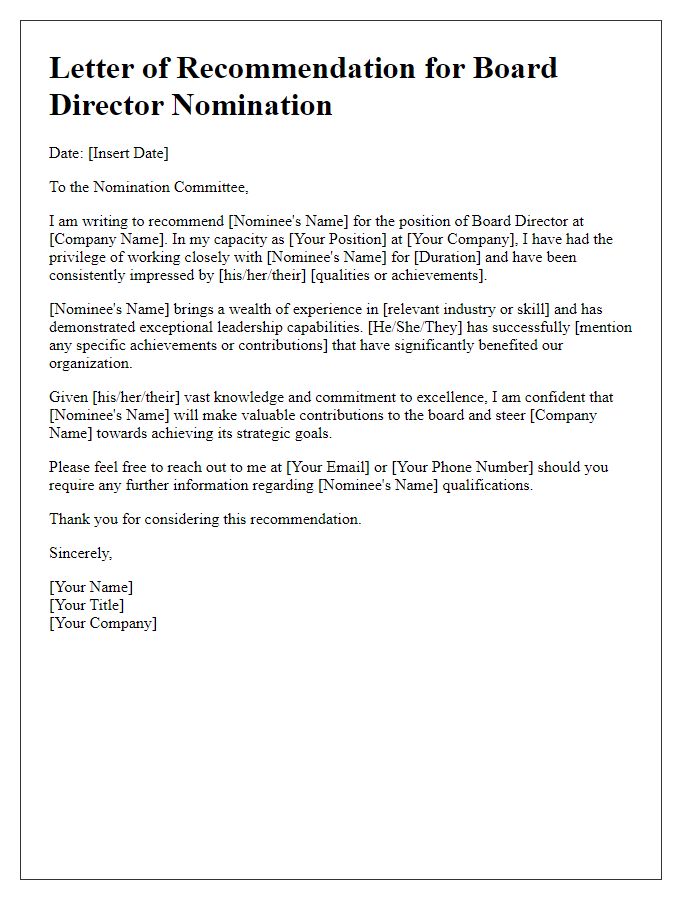
Letter template of executive recommendation for board leadership position.
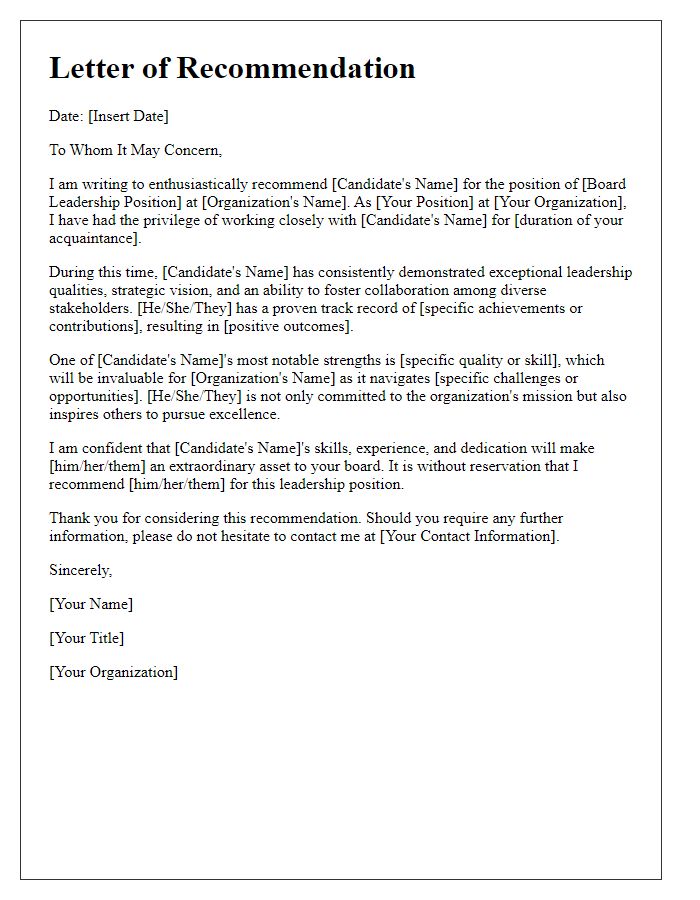
Letter template of executive recommendation for board candidate evaluation.
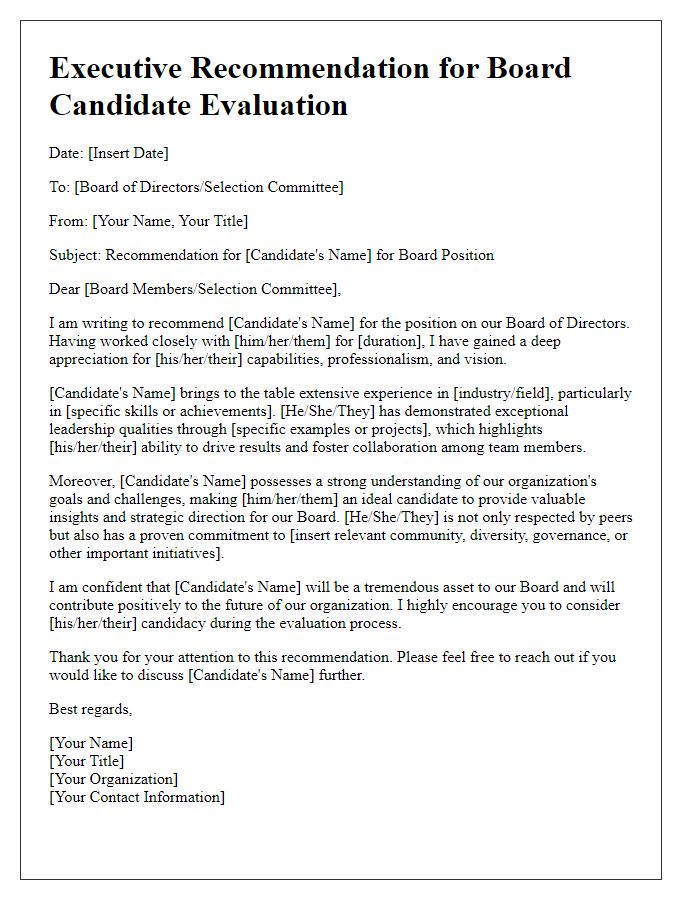
Letter template of executive recommendation for corporate governance board.
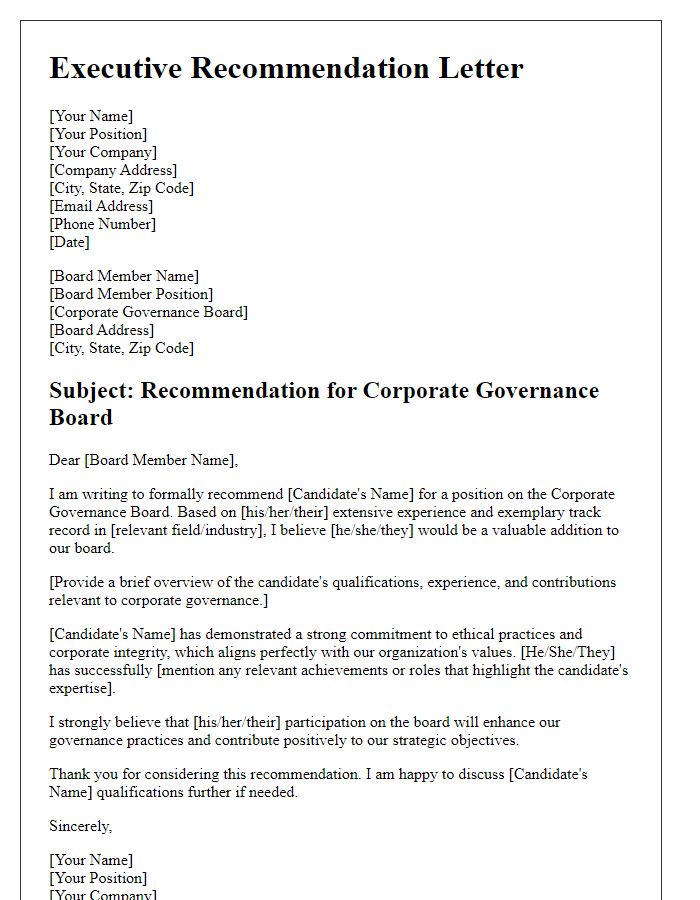
Letter template of executive recommendation for independent board director.
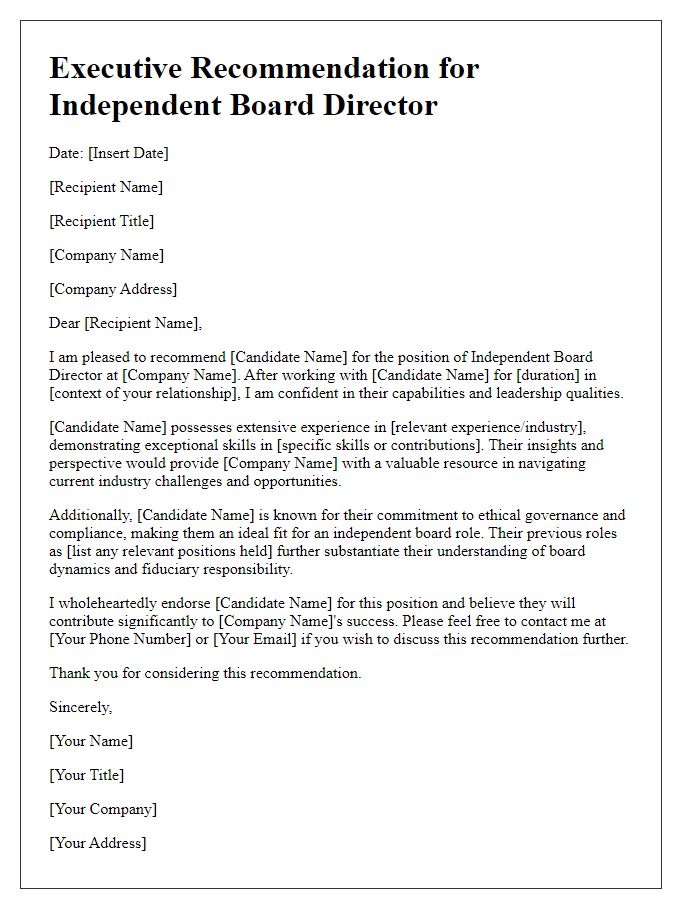
Letter template of executive recommendation for non-profit board membership.
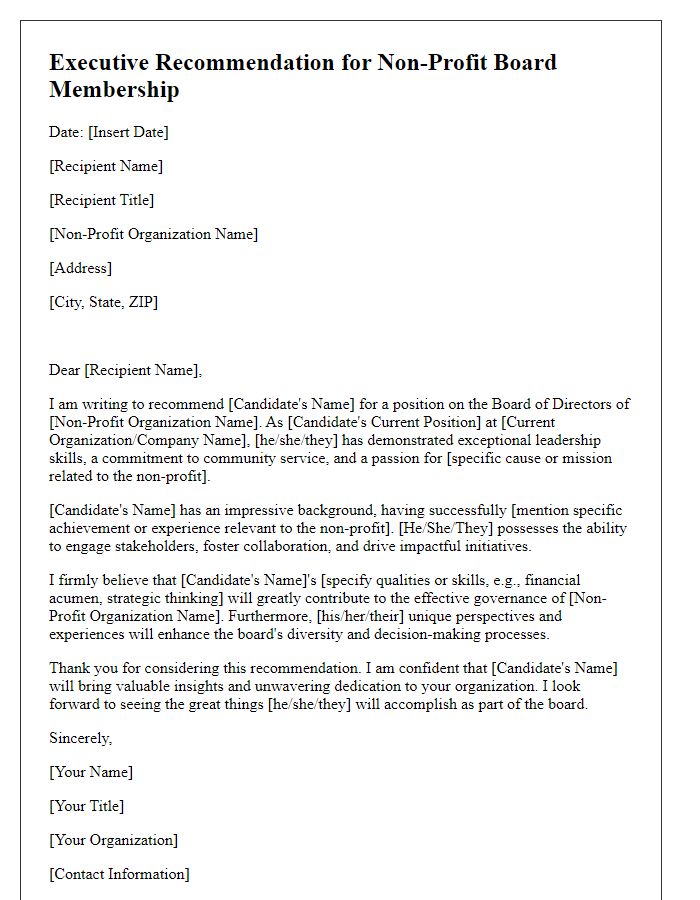

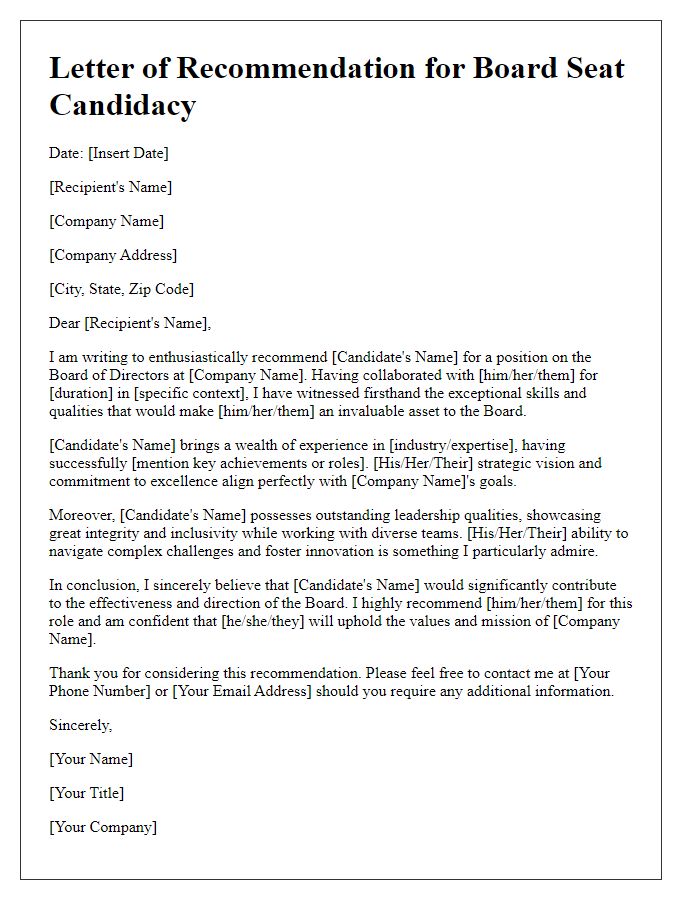
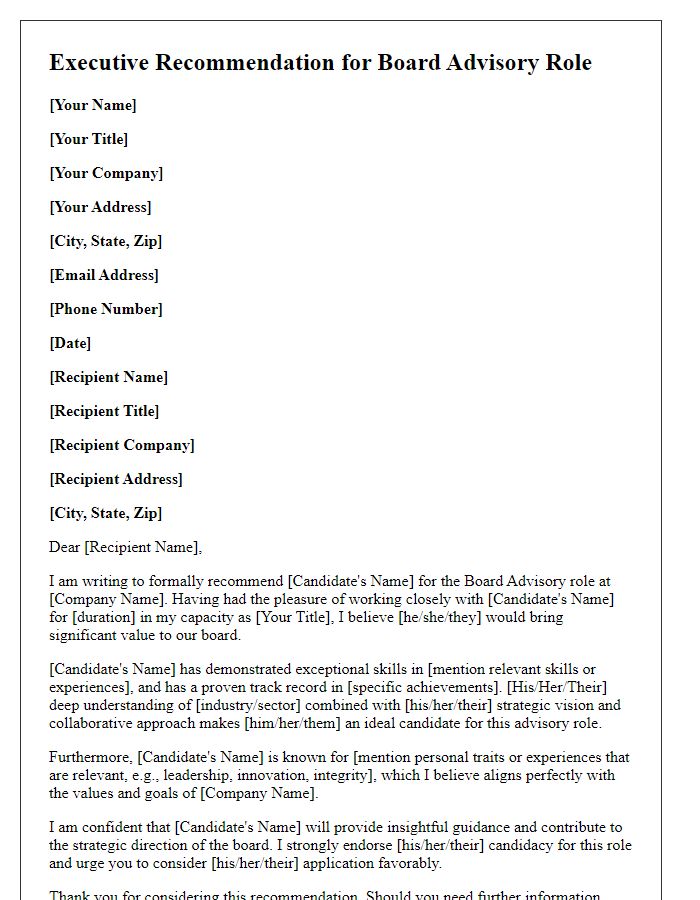
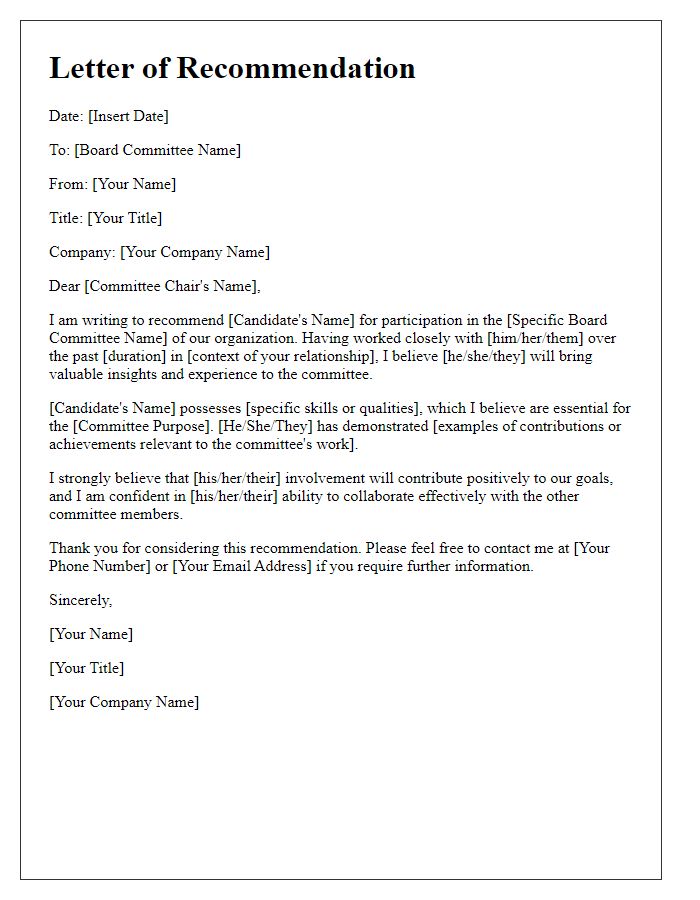


Comments